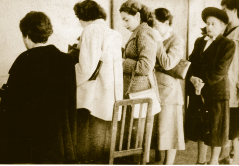May 2024

Marcos Cueto, the scientific editor of HCS-Manguinhos, has just published a new article in The Journal of the History of Medicine and Allied Sciences. This quarterly peer-reviewed academic journal was originally published by the Department of the History of Medicine at Yale University and is now continued by Oxford University Press.
In his article “Pandemics know no borders,” but Responses to Pandemics Do: Global Health, COVID-19, and Latin America, Cueto focuses on Brazil and Peru, the Latin American epicenter of the coronavirus pandemic in 2020 and 2021.
He argues that the pandemic magnified the legacy of years of neoliberal policies, corruption, and racism in these countries, the limitations of their poverty-reduction programs, the fragility of their democratic systems, and the insufficient political regard for public health and basic sanitation.
Cueto relies on the concepts of negligence and necropolitics – respectively, the abdication of authorities in providing sufficient basic services to its citizens and the banalization by governments of preventable deaths of discriminated social groups – and claims that on a global level, the problematic access to medical equipment and vaccines was a failure because of the hoarding of vaccines by wealthy nations and the blaming of developing countries for their high mortality.
The result, as the article shows, was that national and international governmental reactions to COVID-19 worsened health asymmetries within countries and between the Global North and South.
Those interested in the article can write to marcos.cueto@gmail.com.









